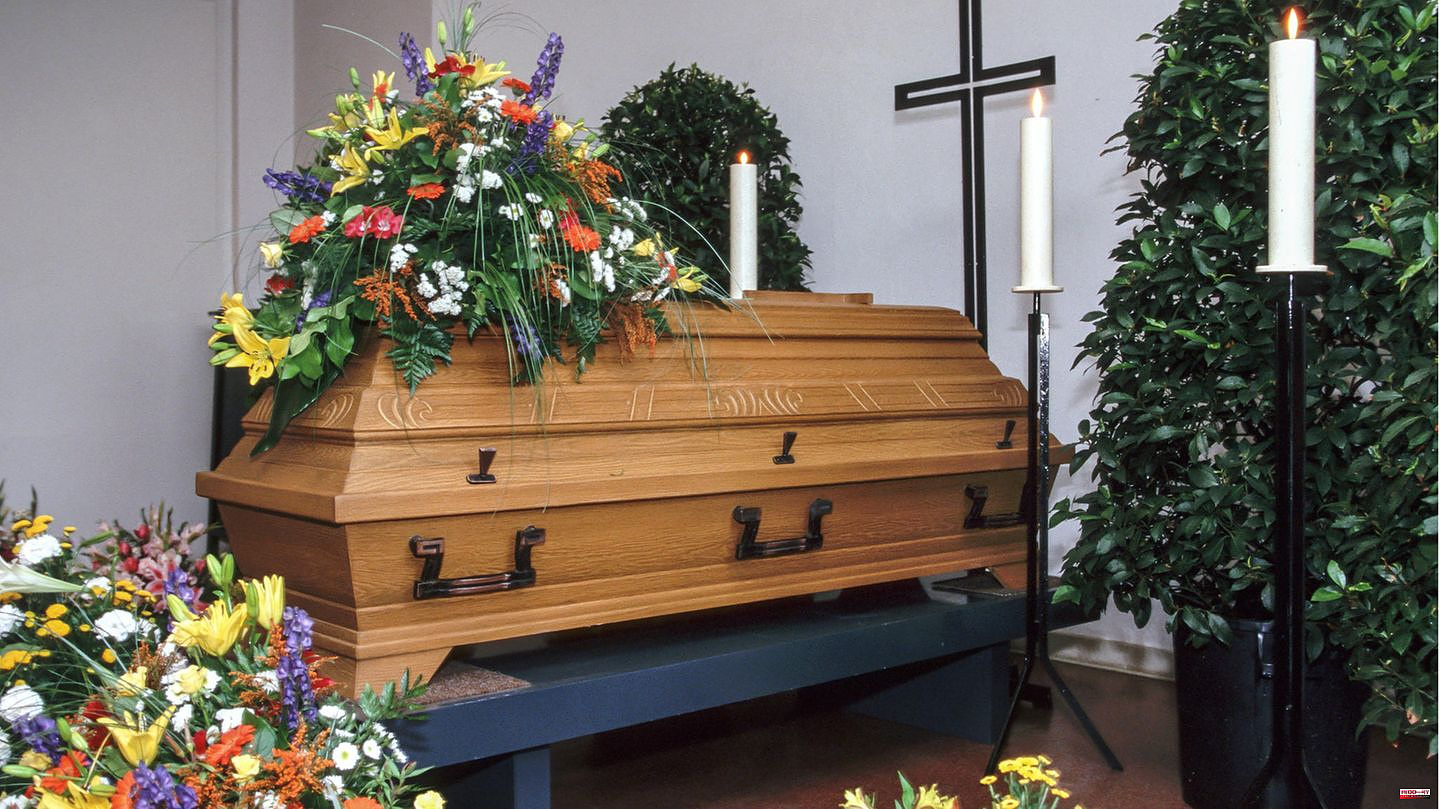A burial is commonplace, but also rare. In Germany, around 900,000 people die every year - most recently the number was even over a million.
Personally, however, most citizens in this country rarely deal with death. On average, it should be about every 18 years. No wonder that hardly anyone is experienced when it comes to this sensitive topic. Often there is no one in the private sphere that you can ask for a recommendation for a trustworthy undertaker. A gateway for dubious providers.
Emotionally, a funeral is an exceptional case: you mourn the loss of a loved one and at the same time have to take care of financial matters. A funeral costs an average four-digit amount, but the prices can also rise to a five-digit sum. Keeping track of costs is therefore essential. Although many people find the thought of money in this context irreverent, it is important. Because there are also dubious providers in the undertaker industry.
Reports on bad extreme cases are currently circulating in TV research: an undertaker is said to have stolen items from the deceased. Or the relatives were left in the dark about the location of the anonymous grave for many years because the urn was buried in a cheaper cemetery than agreed.
Comparatively often there are apparently cases in which the bill is higher than agreed in the end. However, such mistakes can largely be avoided in advance. To do this, however, the bereaved must take care of the details of the burial.
Funerals have become more expensive over the past year, and industry sources say the price hike is likely to continue this year. The reason is general inflation and, for example, the increase in the price of wood, which affects the cost of coffins.
The price of a funeral is made up of many individual items. Research by NDR last November came to an average of 6,000 euros including the funeral service and cemetery fees for a burial. However, such costs can vary greatly within Germany since the cemetery fees vary. According to other sources, costs of around 10,000 euros are quite possible.
Urn burials are generally considered to be cheaper - but you have to reckon with four-digit prices here too.
Many people feel overwhelmed when there is a death and are happy when they get a complete offer for a funeral. That in itself isn't a bad thought either. However, you should make sure that the offer is transparent and that all costs are listed in detail and then agreed in a binding manner. This includes, for example, the exact price for the coffin and the fees for the burial site. It is highly advisable to get written offers from several providers. The price differences can be significant, according to consumer protection organizations.
Important to know: There is no rush when someone has passed away. So you don't have to hire an undertaker that same night. As a rule, a dead person can stay at home for 36 hours before being transported to the morgue. The exact deadlines vary from state to state.
In the event of a bereavement, relatives are often overwhelmed with the organizational details and are happy when a funeral home takes care of everything and makes a package deal.
But some package deals do not list all costs or leave the door open for price increases. Then the bill can end up being higher than expected. The consumer portal of the Bavarian state government advises to get detailed information about companies in the region from the Federal Association of German Undertakers. The association also awards seals of approval to reputable providers.
A coffin can cost a good 2500 euros. According to the NDR, undertakers can earn high margins here. Because many coffins are now manufactured in other European or Eastern European countries at significantly lower purchase prices, as the broadcaster reports. So why not save the coffin if you've chosen cremation?
That's not possible, because in Germany a coffin is always required - regardless of whether it's a burial or a cremation. If the body is cremated, then only in a coffin.
In the case of an urn burial, there are various options for burial, such as an anonymous grave or a burial at sea. In general, urn burials are becoming increasingly popular in Germany, also because they are cheaper than a grave in a cemetery.
Anyone who comes across particularly favorable conditions for a funeral when comparing prices should be warned: Consumer and industry representatives believe that caution is advisable when it comes to discount offers. Because some offers are not transparent, for example if items are omitted in the offers. In the worst case, these could be overpriced after the burial.
The NDR, for example, examined an offer for a funeral of 444 euros - with the result that a funeral for this amount was not possible in this country.
In Germany there are many rules and regulations for a wide variety of professions and their practice. The burial itself is also clearly regulated.
The undertaker profession, however, is license-free. This means that training is not a prerequisite for opening a funeral home, burying people and supporting relatives in their grief. A business license is sufficient.
In principle, anyone can become a mortician, even without the three-year training course to become a mortician, which has been around in this country for a good 20 years and teaches skills that are essential for a burial, such as hygienic care of the deceased or knowledge about how to properly dig graves.
There are an estimated 5,500 undertakers in Germany – around 1,000 more than twenty years ago, as the NDR calculates. These companies are expected to turn over a good two billion euros per year. Being self-employed as an undertaker is therefore popular in this country. And can be quite lucrative.
Sources: NDR documentary "The tricks of the funeral industry", consumer portal Bavaria, Federal Association of German undertakers, consumer portal Baden-Württemberg, Stiftung Warentest, Statista, NDR.de, documentary in "ARD Crime Time": The funeral swindler
Read stern: When a loved one dies, relatives want to say goodbye. People like Phillip Berger help. As a thanato practitioner and embalmer, he operates on the deceased and prepares them so that they can be laid out before burial.








